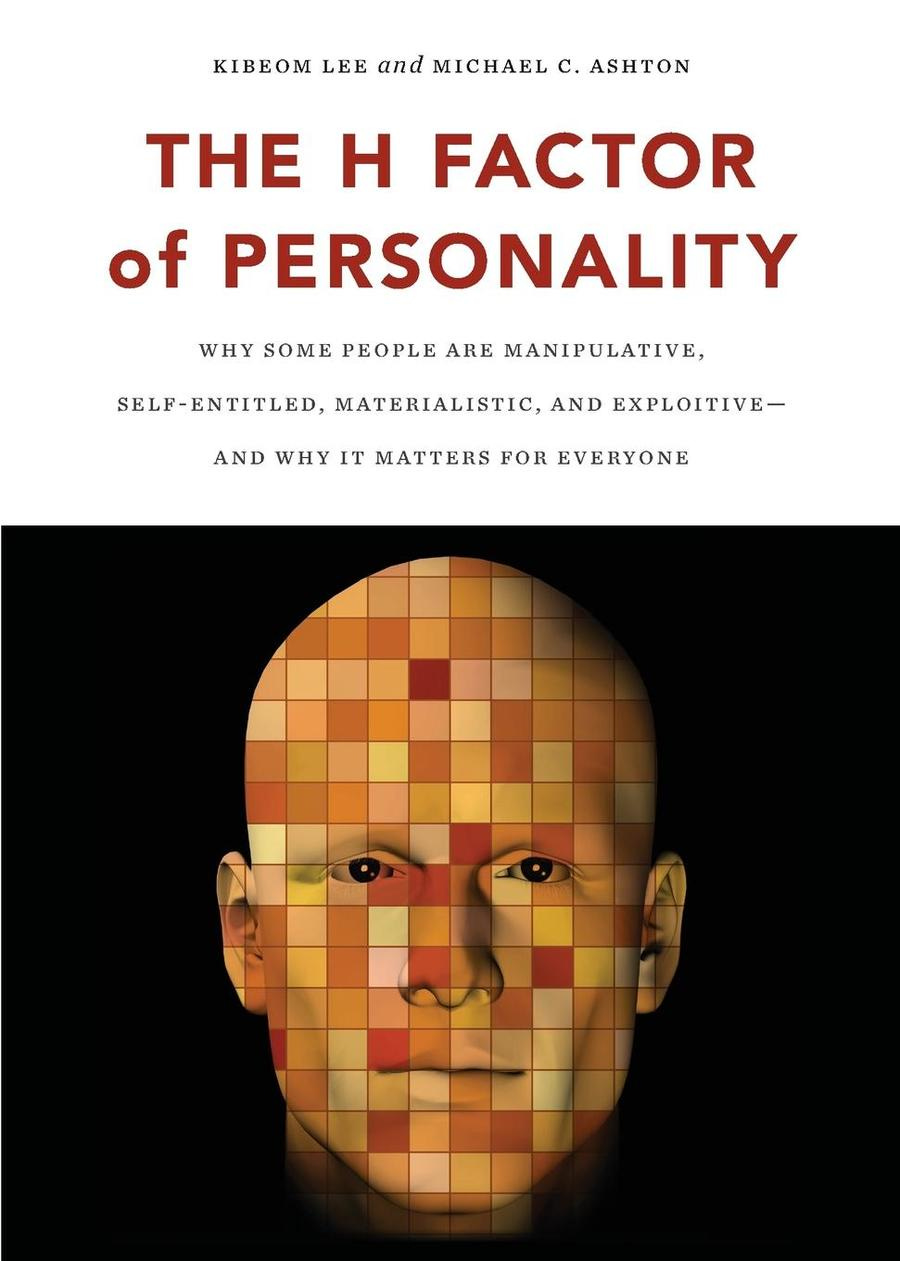The H-Factor of Personality/The Politics of Horrible People
And the Personality Test You Should Actually Take
Dear Reader,
Chances are, many of the people you like least in your life have a unifying trait in common— they are “low H.”
In the last few years I’ve conducted some research on personality and political behavior, which required me to come up to speed on the vast literature on personality traits developed by social psychologists over decades. My favorite book I read was “The H Factor of Personality: Why Some People are Manipulative, Self-Entitled, Materialistic, and Exploitive―And Why It Matters for Everyone” by Kibeom Lee and Michael Ashton. Ashton and Lee have developed the “HEXACO Model” of personality, which holds that personality can be broken down into six core traits: Honesty-Humility, Emotionality, eXtraversion, Agreeableness, Conscientiousness, and Openness to Experience. A lot of personality testing is junk science (like the Meyers-Briggs everyone in corporate America seems to take), but the HEXACO model has been subjected to more rigorous testing and cross-cultural validation. For those interested, you can take the test yourself here: https://hexaco.org/hexaco-online
We know from Ashton and Lee’s research that the traits of honesty and humility are highly correlated, so much that they can be reliably collapsed down to one trait— the “H-Factor.” People that think highly of themselves and are willing to brag and boast also tend to be more dishonest and untrustworthy. These “low-H” individuals are deceitful and pretentious, and they tend to be some of the worst individuals we know.
My working hypothesis of late is that these “low-H” types are disproportionately represented in our political system. Donald Trump is the archetype, or course, but there are many others. The Left often idolizes folks like Joe Biden or Bill Clinton, but the former effectively lied about his fitness for office and failed to have the humility to withdraw from the race until it was too late, and the latter received a blowjob from a 22-year-old intern in the Oval Office. I’m not sure why he still has a place in public life. The latest round of cabinet appointees is like a parade of Low-H types— Pete Hegseth, Matt Gaetz, Robert Kennedy Jr, Elon Musk, the list continues to grow. Trump’s central criterion for these jobs seems to be whether the person backed his “Bie Lie” about the 2020 election, which is almost like creating a screener for dishonesty.
Much has been made of Trump’s capacity to connect with the working class and develop his cult of personality. For me, his secret superpower is his unrivaled willingness to lie and self-aggrandize. He has such a tenuous relationship with the truth that he can simply tell people what they want to hear, even if it is untethered from reality. That, coupled with his narcissism and arrogance, allows him to boast and brag at will, and say things that anyone with would make a normal person blush.
Politics is probably disproportionately attractive to those who have an inflated sense of self, and subtle dishonesty seems to be a rewarded and perhaps learned behavior for our public officials. I’ve never seen research that directly tests the relationship between Honesty-Humility and political ambition, though my friend Adam Dynes, a professor at BYU, does have a paper that assesses some other personality traits. Using a nationally representative survey of Americans, he finds that individuals that are less Conscientious and less Agreeable are more likely to express an interest in running for office. In other words, those among us that are the more prickly, imprudent types are most likely to gravitate to politics.
This is also why it sometimes seems so strange to see a truly decent human being rise to the top of our political system. Tim Walz, from everything I’ve ever read, seems like a person of actual character. But his “Minnesota kind” seemed so out of place up there on the debate stage, next to J.D. Vance of all people, who has learned Trump’s tricks and just outgunned him with a barrage of lies.
What do we do with Low-H people? For Ashton and Lee, their general advice is to avoid low-H people at all costs, as they tend to make life miserable. This may work for our personal lives, but not for our politics unfortunately.
That’s all for today. Thanks for reading.
Rory





Loved this. A followup piece discussing the broader institutional biases/reflexes that develop over time and basically sort and code for these personality types, further creating pathways for power for them would be interesting.